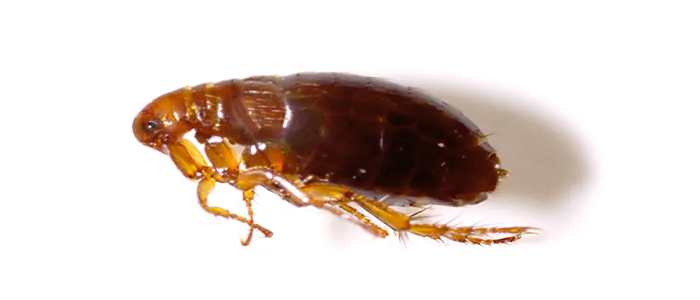Flea Control

They are blood sucking ectoparacities of mammals and birds. The rat flea transmits bublnic plague but squirrels and other rodent species may also transmit bubonic plague to human beings. Adult lay eggs on the body of ictims and they fall on the sleeping places of victims, in house they breed in cracks and crevices, under matting, beneath carpets, often bread in barn on granaries particularly where floor litter accumulates. The incubation period varies from 3-10 days according to temperature. The life cycle varies 3-6 weeks depending on the species as well as temperature and humidity. Fleas usually gain entry in house through pets or visitors pets.
Fleas are small, blood-sucking parasites that primarily infest mammals and birds. Among them, the rat flea is notorious for transmitting bubonic plague to humans, although squirrels and various rodent species can also act as vectors for this disease.
Adult fleas lay eggs on their host's body, which then fall off onto bedding or other surfaces where the host rests. Inside houses, fleas often breed in hard-to-reach places like cracks, crevices, under mats, and beneath carpets. They can also thrive in barns and granaries, especially in areas where organic material collects on floors.
The incubation period for flea eggs ranges from 3 to 10 days, influenced by ambient temperature. Similarly, the entire life cycle of fleas varies between 3 to 6 weeks, depending on the specific species as well as environmental factors like temperature and humidity.
Fleas typically gain entry into homes through pets or pets belonging to visitors, using them as hosts to feed and reproduce. This cycle perpetuates the infestation, making effective pest control measures essential to prevent discomfort and health risks associated with flea bites and potential disease transmission.